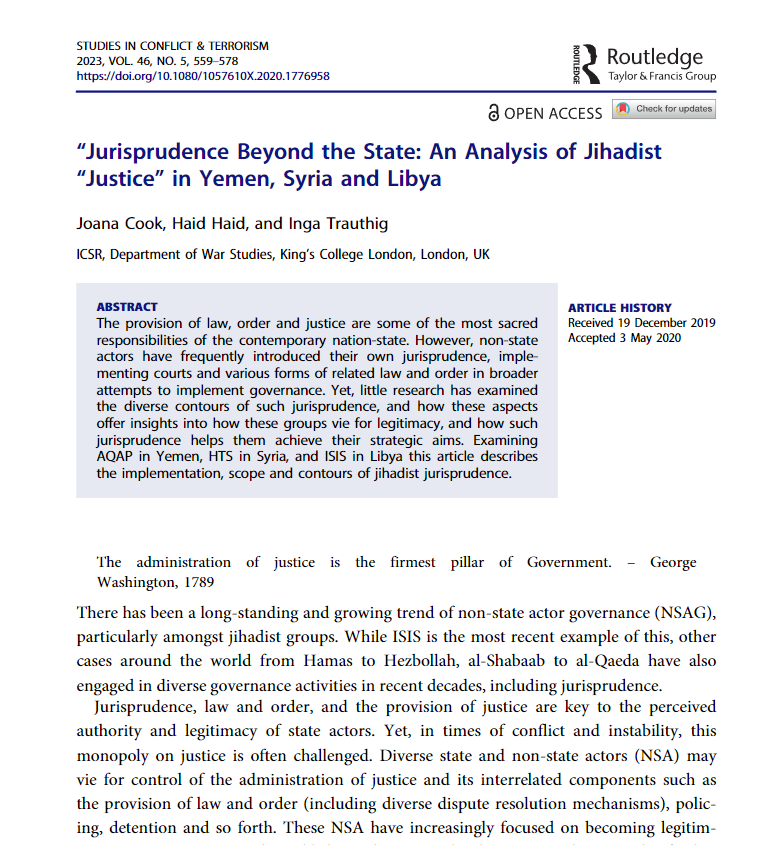“Jurisprudence Beyond the State: An Analysis of Jihadist “Justice” in Yemen, Syria and Libya
The provision of law, order and justice are some of the most sacred responsibilities of the contemporary nation-state. However, non-state actors have frequently introduced their own jurisprudence, implementing courts and various forms of related law and order in broader attempts to implement governance. Yet, little research has examined the diverse contours of such jurisprudence, and how these aspects offer insights into how these groups vie for legitimacy, and how such jurisprudence helps them achieve their strategic aims. Examining AQAP in Yemen, HTS in Syria, and ISIS in Libya this article describes the implementation, scope and contours of jihadist jurisprudence.
There has been a long-standing and growing trend of non-state actor governance (NSAG), particularly amongst jihadist groups. While ISIS is the most recent example of this, other cases around the world from Hamas to Hezbollah, al-Shabaab to al-Qaeda have also engaged in diverse governance activities in recent decades, including jurisprudence.
Jurisprudence, law and order, and the provision of justice are key to the perceived authority and legitimacy of state actors. Yet, in times of conflict and instability, this monopoly on justice is often challenged. Diverse state and non-state actors (NSA) may vie for control of the administration of justice and its interrelated components such as the provision of law and order (including diverse dispute resolution mechanisms), policing, detention and so forth. These NSA have increasingly focused on becoming legitimate governing actors and establishing their own legal systems. This may be further influenced by local dissatisfaction with existent justice mechanisms; non-existent judicial mechanisms in lawless or ungoverned spaces; or flawed, corrupt, or ineffective national justice systems which drive the need for traditional justice mechanisms (such as tribal) or other locally based solutions, where violent jihadists have been ready to step up, co-opt and exploit. However, there remains a yawning gap in contemporary analysis of what this NSA jurisprudence looks like on the ground, how and why it evolves, and what purpose it serves…


